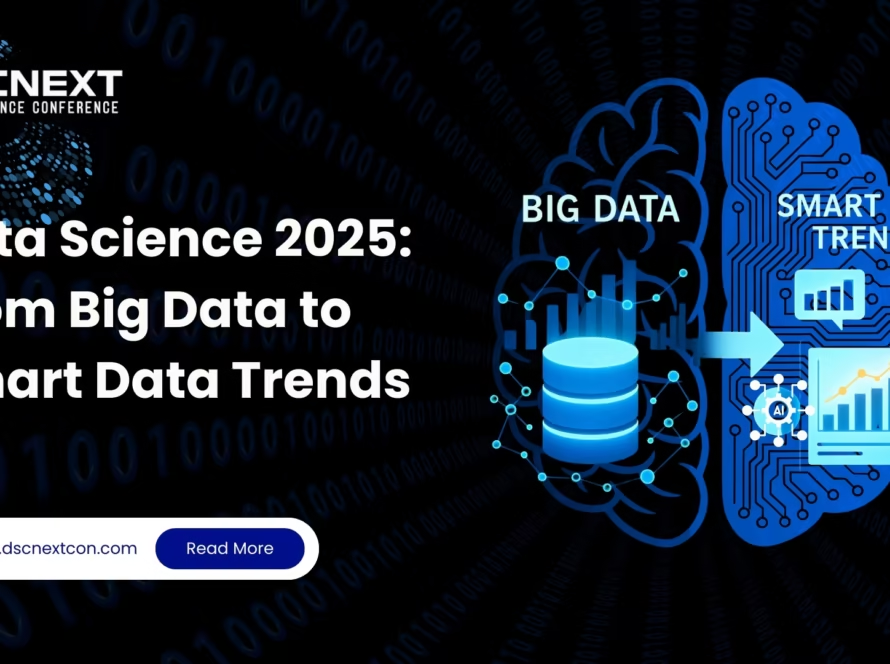Discover the top enterprise data science trends for 2025–2026, including AI, edge computing, and data democratization. See how Amsterdam is leading smart city innovation.
Transforming Enterprise Operations Through Data Science
Enterprises in Amsterdam and across the globe are embracing a new wave of data science innovations that are reshaping how they operate, compete, and contribute to urban progress. From intelligent automation to ethical AI, these developments are not just trends—they’re critical enablers for smart city infrastructure, sustainable development, and future-ready business models. This article explores the leading enterprise-scale data science innovations expected to define 2025 and 2026, particularly in data-forward cities like Amsterdam.
Augmented Analytics: From Insight to Action
One of the most transformative trends is augmented analytics and automation, which merges AI and machine learning to automate the preparation, analysis, and visualization of data. This democratizes data science by making insights more accessible to non-technical users, accelerating decision-making across departments. In Amsterdam, augmented analytics is being deployed in transportation and energy systems, where real-time AI-augmented insights optimize resource management and support the city’s smart infrastructure goals.
NLP for Smarter Public Services
Another major innovation is Natural Language Processing (NLP) at enterprise scale. NLP enables the extraction of actionable insights from unstructured sources such as emails, feedback, social media, or IoT logs. Enterprises and public agencies in Amsterdam are leveraging NLP for automated citizen support systems, virtual assistants, and chatbots, offering responsive and multilingual services to a diverse population. This is enhancing citizen engagement and making public-facing services more intuitive and effective.
Scalable Solutions with Cloud-Native and Hybrid Architectures
As data volumes soar, cloud-native and hybrid data architectures are becoming essential. Enterprises are adopting multi-cloud and hybrid environments that combine public, private, and on-premises solutions. In a collaborative city like Amsterdam, these architectures support GDPR compliance and facilitate seamless data exchange between government bodies, startups, and large enterprises. This agility is key to faster urban planning and supply chain coordination.
Edge Intelligence: Real-Time, Localized Insights
The expansion of edge intelligence—processing data closer to its source—is another significant shift. With the proliferation of IoT devices in transportation systems, public infrastructure, and environmental monitoring, Amsterdam is using edge computing to support real-time applications like dynamic traffic control and pollution tracking. This low-latency model reduces dependence on cloud processing and enhances local decision-making.
Data Fabric and Democratization: Breaking Down Silos
A related development is the growing use of data fabric architectures and data democratization. Data fabric enables real-time, governed access to integrated datasets across business silos. When combined with democratization efforts, it empowers not just analysts but operational teams and city planners to access mission-critical data. This supports comprehensive solutions in urban mobility, healthcare, and emergency response.
Agentic AI: Autonomous Decision-Making for the Enterprise
A fast-growing area is agentic AI—systems capable of autonomously setting goals and executing tasks. These AI agents reduce the need for constant human oversight and are increasingly embedded in enterprise software. Early applications in Amsterdam include autonomous fleet maintenance and building energy management, with wider adoption projected by 2028.
Ethics, Governance, and Data Privacy by Design
Meanwhile, responsible innovation is taking center stage. Amsterdam, known for its leadership in ethical AI, is embedding AI governance and data privacy by design into enterprise systems. With GDPR and forthcoming EU AI Act compliance in mind, organizations are building transparency and control into their algorithms, ensuring that technology aligns with citizen rights and public trust.
AIaaS and DaaS: Innovation Without Infrastructure Overload
Additionally, the rise of AI as a Service (AIaaS) and Data-as-a-Service (DaaS) is democratizing access to advanced tools. These subscription-based models are empowering midsize enterprises and civic agencies to deploy AI capabilities without massive upfront investments. In Amsterdam, such services are aiding projects in sustainable urban development, healthcare, and mobility innovation.
DSC Next 2026: Where Data Leaders Converge
As these innovations gain momentum, the DSC Next 2026 conference is set to be a global platform spotlighting enterprise data science, AI, and digital transformation. Scheduled to take place in Amsterdam, this event will convene data scientists, business leaders, and urban planners to explore emerging tools and share best practices. From responsible AI to AIaaS, DSC Next 2026 will showcase technologies that are reshaping smart cities, making it a must-attend for anyone invested in data-driven futures.
Conclusion: Amsterdam as a Model for Data-Driven Progress
Amsterdam, with its commitment to innovation and responsible tech, is at the forefront of enterprise data science adoption. By embracing augmented analytics, NLP, cloud-native platforms, edge computing, and agentic AI, enterprises are not only enhancing operational excellence but also contributing to smarter, more sustainable cities. The trends of 2025–2026 set a clear direction: data will not just support business—it will shape the future of urban life.
References
Gartner (2024). Emerging Tech Impact Radar: Data & Analytics.
McKinsey & Company (2025). The Future of Data in Smart Cities.
Amsterdam Smart City Initiative. https://amsterdamsmartcity.com

